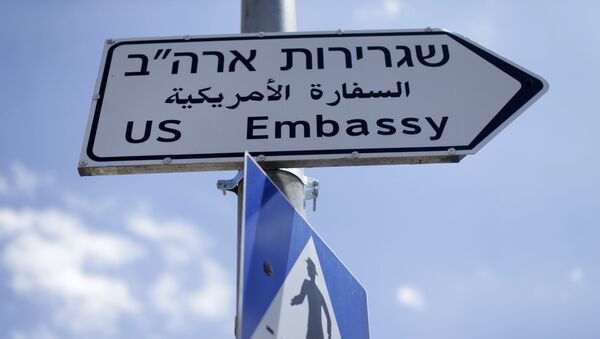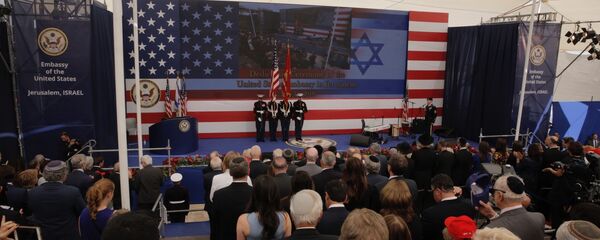The Trump administration's decision to merge the US Consulate, which has long served as diplomatic mission for Palestinians, and the embassy in Jerusalem, has prompted criticism from Secretary General of the Palestine Liberation Organization (PLO) Executive Committee Saeb Erekat, who called it "the last nail in the coffin of the US administration's role in peacemaking".
"The only conceivable diplomatic motivation for subordinating the Jerusalem consulate [which is actually in West Jerusalem] to the US embassy is to add a bit more pressure on the Palestinians in advance of publication of Trump's peace plan, by signalling that there is now no direct formal bilateral American-Palestinian diplomatic channel at the Middle Eastern end [the PLO office in Washington was closed several months ago]," Mark Heller, principal research associate at the Tel Aviv-based Institute for National Security Studies (INSS), told Sputnik.
According to State Department spokesman Robert Palladino, the recent initiative "does not signal a change of US policy on Jerusalem, the West Bank, or the Gaza Strip".
Heller noted that "the Palestinians themselves declared that they would cut off direct discussion about peace process after the US moved its Israel Embassy to Jerusalem and cut funding for the United Nations Relief and Works Agency for Palestine Refugees in the Near East (UNRWA)" on 31 August 2018.
According to the researcher, "the Palestinian Authority (PA) decided to forgo US assistance lest it open itself to US criminal charges because of its 'pay for slay' policy".
Still, he believes that "a lot of this is symbolic and semantic".
"The two sides can still communicate directly easily enough if they want to and there will still be a 'Palestinian Affairs Unit' to carry out the consulate-general's political functions".
When asked whether the merge would affect the Israeli-Palestinian peace negotiations, Heller expressed doubts that the Trump administration's move could really upend the process "which has been dormant for a long time anyway but can be revived if everyone wants to do that".
"If I had a ruble for every declaration by Saeb Erekat or Hanan Ashrawi that something or other is 'the last nail in the coffin of the peace process' or 'the straw that broke the camel's back,' I would be a rich man," the researcher remarked.
He believes that Palladino's statement that the move does not signal a change of US policy on Jerusalem, the West Bank, or the Gaza Strip is "credible" but it still signals Washington's "anger".
Commenting on how the Trump administration's recent move will affect dialogue between the US and the Palestinians, Pipes presumed that "it might push the PA to re-enter talks with the US government".
Likewise, the closure of the US representation for the PLO in Washington in September 2018, as well as the "cut-off of funds" were "intended to pressure Mahmoud Abbas to dialogue with Washington", according to the historian.
The views and opinions expressed by the speakers do not necessarily reflect those of Sputnik.




